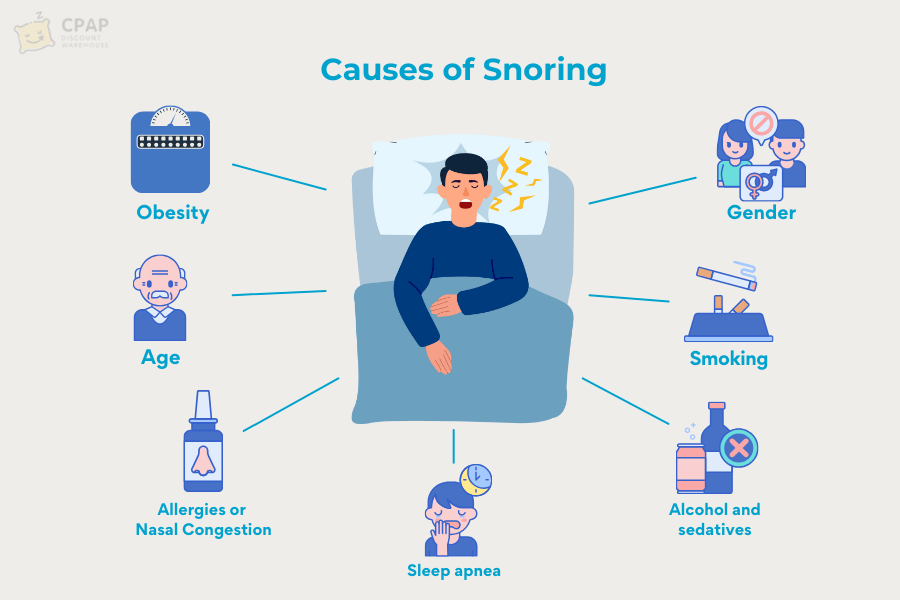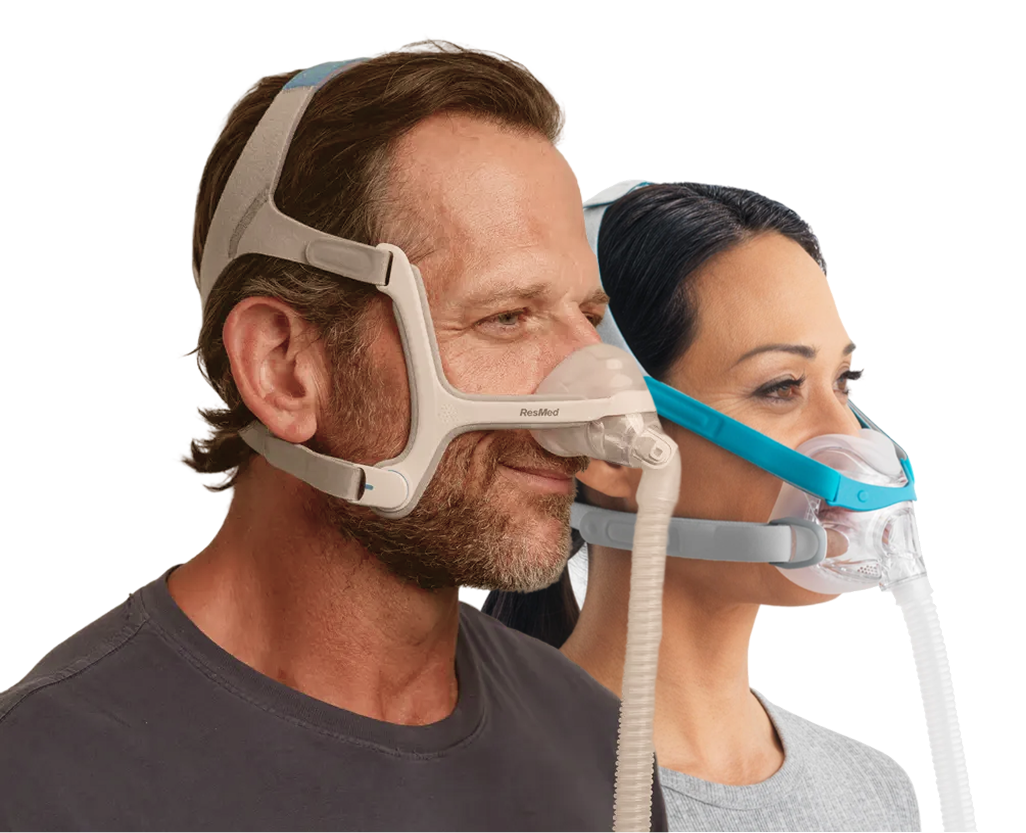Loud night breathing is a commonplace issue that impacts hundreds of thousands of humans worldwide. Not most effective can it's bothersome to the individual snoring, however it can also disrupt the sleep of those around them. If you're wondering how to stop snoring, the good news is that there are numerous steps you can take to assist reduce or eliminate loud night breathing. In this article, CPAP Discount Warehouse will help you explore diverse techniques and remedies.
Causes of Snoring
Snoring can be caused by a variety of factors, such as:
Obesity: Obesity causes fat to accumulate around the throat, putting pressure on the airway and resulting in snoring. This condition is more common in men because they store more fat around the neck and upper body than women.
Age: As people age, their throat muscles gradually weaken, making the airway more likely to collapse while sleeping.
Gender: Men are more likely to snore than women due to differences in airway structure and hormone levels.
Allergies or Nasal Congestion: Understanding how to stop snoring starts with addressing a clogged nasal passage, which can make nose breathing difficult, forcing more air through the mouth and increasing snoring.
Sleeping position: Sleeping on your back can cause the tongue and soft tissues to collapse, partially obstructing the airway.
Alcohol and sedatives: Relax throat muscles, which can lead to snoring.
Smoking: Smoking irritates and inflames the airway tissues, which causes more snoring.
Sleep apnea: A more serious condition that causes snoring is a complete blockage of the airway, resulting in a brief cessation of breathing and loud snoring.
>>> Learn more about: What causes snoring? 6 factors can contribute to snoring
How to Stop Snoring?
Sleep on Your Side
Sleeping on your side stops the tongue and the soft tissue in your throat from moving up and blocking your airway, which is what causes snoring. If you snore at night and usually sleep on your back, try sleeping on your side instead. The text is now simpler.
There are lots of CPAP pillows that can help you stay on your side, such as special pillows and posture alarms. To lie down and stay in this position all night, use a body pillow or place a pillow behind your back.

Lose Weight
Excess weight, particularly around the neck, can strain the airway and contribute to snoring. Losing a few kilograms through a healthy diet and regular exercise can significantly reduce snoring.
>>> The Link Between Obesity and Sleep Apnea
Throat exercises
There are numerous exercises available today to strengthen the muscles of the mouth, tongue, and throat in order to improve snoring while sleeping, including tongue exercises, swallowing exercises, and pronunciation exercises.
Avoid alcohol and sedatives
Alcohol and sedatives relax the muscle mass in your throat, which could increase the chance of loud night breathing. Try to avoid consuming these materials, in particular inside the hours main up to bedtime.
Quitting smoking
Smoking irritates the mucous membranes in your throat, causing inflammation and more snoring. Quitting smoking can help relieve this irritation and improve your overall respiratory health, making it easier to breathe while sleeping.
Elevate Your Head
Sleeping with your head elevated may help keep your airway open. You can achieve this by using a wedge pillow or by placing blocks under the bed frame to lift the entire bed.
Treat Nasal Congestion
Your doctor might suggest a steroid nasal spray to help clear your sinuses. If the spray doesn't work, your doctor may suggest using a nasal dilator. Nasal dilators are devices that use tension to open the nasal passages from the inside. The text is now simpler.
A nasal strip, or external dilator, is a small plastic device that is attached to the outside of the nose with adhesive. It tries to keep its shape, but this makes it pull outward, which lifts the skin on the nose and opens the nasal passages.
Continuous Positive Airway Pressure CPAP therapy
This treatment involves wearing a mask over your nose and/or mouth while you sleep, which delivers a continuous flow of air to keep your airway open.

>>> What is Snoring? 6 Factors Contributing to Snoring
When to See a Doctor
If you experience loud snoring, gasping or choking during sleep, excessive daytime sleepiness, difficulty concentrating, or other signs of sleep apnea, it’s important to consult a doctor. Additionally, if your snoring is affecting your relationships or overall health, seeking medical advice is crucial. Understanding How to Stop Snoring can involve professional assessments, and a healthcare provider can recommend effective treatments tailored to your needs.
Conclusion
Snoring can be a frustrating and disruptive issue for both the snorer and their bed partner. By following the practical tips and remedies outlined in this guide on How to Stop Snoring, you can take steps toward achieving a quieter and more restful night's sleep. If snoring persists or you suspect an underlying medical condition, consult a healthcare professional for a thorough evaluation and a tailored treatment plan.





